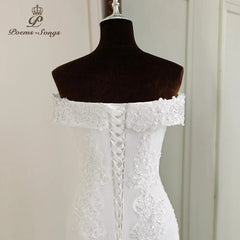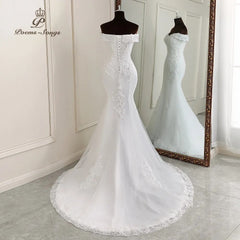Wedding traditions from around the world: Africa
April 26, 2023
Melody Mburu
Couples all over the world celebrate their love and in most cases through traditions that are meant to honor their cultures. Weddings are a special occasion no matter where you might be in the world. Different cultures have well-cultivated and maintained rituals meant to protect the newlyweds physically, spiritually, and in some cases financially.
In Africa, honoring traditions is a great way to show respect to your in-laws and your spouse. In this article, we will look at different traditions in different areas of Africa.
African Wedding Traditions
South Africa

South African wedding traditions may start with an engagement ceremony known as a lobola. The groom and his family pay the bride's family a payment called bridewealth. In olden times, this payment was made in the form of cattle but cash has become an acceptable mode of payment.

Once the Lobola negotiations are finalized and paid, there is a three-day-long wedding ceremony from Friday to Sunday. Each day of the long celebrations has a purpose. On Friday, the groom’s family visits the bride’s family with gifts, and the families sing and dance traditional songs.
On Saturday, there is a white wedding which bears a lot of resemblance to a Western wedding. The ceremony is held in a church, the bride wears a white wedding dress, and they hold a reception ceremony.
Finally, the last ceremony is called Umbao which is more of a traditional Zulu celebration. The bride's father shows the bride to the groom's home and announces his daughter's marriage to their ancestors. She then walks to the groom's home and becomes acquitted to his ancestors.
There is a gifting ritual where once the gifts are all given out, the bride creates a makeshift bed and leads the groom to it. He sits on the bed and his feet are washed by the bride, then he lays down. Finally, he is chased away by the bridesmaids who hit him with little sticks. Afterward, food and dancing with further celebrations.
Nigeria

Weddings in Nigeria are festive ceremonies with customs and colorful traditions full of music, food, and dancing. It all starts with the dowry. The bride's family will present the groom’s family with a list of dowry requirements which should all be provided before the engagement is made official.
All Nigerian weddings invite everyone from the community to celebrate with an abundance of food and drink. It is also common now to have two ceremonies, one traditional, and one in a Western setting just like in South Africa, and both ceremonies are preceded over by different officiants.
For the traditional wedding, the ceremony is officiated by a woman called Alaga, whose job is to heckle the groom and his friends bringing cheer and entertainment during the hour-long ceremony. The bride, her bridesmaids, and families wear a traditional ornate headpiece called Gele, and the grooms wear a Fila to honor the traditions of the day.
Both families choose a color for their guests' clothing to separate them. During the ceremony, the groom and his groomsmen will lie flat on the ground. This is a symbolic act of honor and respect for the bride's family. Once this is done, the bride and groom will cut the cake during the ceremony to symbolize prosperity.
After the wedding, the food is provided by the bride's family. Traditionally the bride’s mom and her family will prepare all the food to create an authentic experience. Dancing, jubilations, and alcohol will follow and everyone will dance and make merry.
Kenya

Kenya has a total of 43 tribes all of which have their own different traditions when it comes to marriage. However, just like the two above African wedding traditions, Kenyans also believe in dowry payments. The groom will start by meeting the parents of the bride and start negotiations on the bride price. They may meet about two to three times before the final settlement on the price.
Often, the groom is not allowed to speak during the negotiations. His father and uncles would speak to the bride-to-be male family members and the bride herself would not be there during these meetings. Once this is done, there will be a ceremony at the bride-to-be's homestead welcoming the groom and his family into the family.
This is the traditional wedding party for the Kikuyus. The groom and his family would bring the dowry payment with other gifts. They will be welcomed with singing and dancing as they are celebrated coming into the family. The bridesmaids with the bride will be covered from head to toe, dressed exactly the same, and presented before the groom.
He will be asked to find his bride. If he picks the wrong woman, he will pay a fine to the bride's family. The families will then introduce each other and familiarize themselves. Later, food and drink will be served, which will be followed by dancing and celebration.
Once the traditional wedding is over, the couple will then move forward with a white wedding. This wedding will follow the procedure of normal Western white weddings.
Ghana

Ghanaians typically did not waste time when it came to proposing marriage. After two or three dates, the men would propose marriage as they believed in not taking advantage of each other. If the engagement is accepted, the groom will then proceed to visit the bride’s family in a tradition called KoKooko.
This tradition is where the groom informs the bride's family of his intention to marry their daughter. Once the proposal is accepted, they will set the marriage date and give a dowry to the parents of the bride and money to her brothers for the protection of the bride.
During the wedding event, important spokesmen from both families will stage a playful negotiation of engagement requirements. Only the two people who were chosen to speak will negotiate, which will include asking for the bride’s hand in marriage. Next gifts are given to the bride's family with the dowry, which are presented in a decorative trunk and presented to the bride.
Finally, a string of “fake brides” will be presented to the groom for him to pick out his bride. These women will dress alike and their heads will be covered as a playful way to liven up the ceremony. Once he chooses his bride, the two will now proceed to officially wed. The couple will dress in clothes that make them feel and look like royalty.
The bride will then be asked to give her consent for the wedding three times to make sure she is not being coerced into marriage. The groom then presents the bride's father with a drink such as palm wine that seals the marriage. A reception with meals, music, and dancing will then follow, with guests greeting the couple with wedding favors.
Conclusion
All African countries have great and interesting wedding traditions ranging from three-day celebrations to some where the bride’s father spits on his daughter's head and breasts to ward off evil. Some even send the newly wedded couple with insults to ward off evil. We at SolidCharm respect, and honor your traditions and would be privileged to be part of your journey.




















